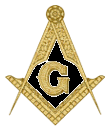
Lodge Burroughs Strange No. 87
Vijayawada, India


Article on Freemasonry - 70
The Relevance of Freemasonry in the Present
by W.Bro. J.N. ChowdharyLodge Sanchi No. 247
Before we embark upon the main topic of discussion let us first try to understand, define the basic concept or the philosophy of Freemasonry and observe in what peculiar ways it has relevance to the modern times and Modern man not only in our times but in the past as well. The very fact that the concept of Freemasonry has existed and not only existed but has been accepted by the mankind during the last hundreds of years in the recorded history is itself a great proof that the concept of Freemasonry had always something to give to the contemporary man.
From the most ancient times or rather since the time man has become civilized and has started living in Society, there, has always been the strands of good, and Bad, Moral and Immoral, Piety and Evil and the civilized man has always striven to tread on the Paths of virtue as detailed and described by the Wise men and Sages of their own times. Free-masonry from the times immemorial has taught us to be kind at Home, Honest in Business, courteous in Society, Fair in work and extending relief and concern towards the less fortunate. The Freemasonry teaches us to pay due to obedience to the laws and regulations of the state to which one belongs, by never contenancing any act which may have the tendency to subvert the peace and good order of Society. Free-masonry also teaches us to be obedient to the Almighty God, helpful to the neighbour and strict in self discipline.
In the present strife Torn, Turbulent and law less world the relevance of such Organizations ⁄ Societies is more important as they teach us to preserve to be prudent and well disciplined. The Freemasonry not only teaches but expands these principals by various rituals and charges which try to make an indelible impression upon one's heart. The first encounter of an Individual with the Freemasonry starts with sincere promises from him that he is prompted to solicit the privileges of Freemasonry by a favourable opinion pre-conceived of the institution, a genuine desire for knowledge and sincere wish to render himself more extensively serviceable to the humanity at large. He is exhorted to dedicate himself to such pursuits in life that may at once enable him to be respectable in life, useful to mankind and an asset to the institute of Freemasonry itself. His attention is diverted to certain excellence of character and certain inherent duties which are obligatory on the part of every right thinking individual. He is directed to pay due obedience to the laws and regulation of the State and to be an ideal Citizen.
The progress of an individual is monitored and he is guided to further excellence of character and the knowledge. He is told to contemplate the inevitable destiny of all mankind die and mingle with the dust from where he arose. He is charged to perform all his allotted tasks and to fulfill his and this mortal earth while time to do. It is useless the when the time shall be no.
Although various Texts and in the saying and Teachers the same to be found from time to time due to fast movement and nization of the present time types of teachings are lost of the persons may be the in built resistance with bane of our times to any religious sermons. In this the relevance of Freemas comes a reality where natural tendency it conc make a man aware of it he owes towards is cre Society in general and to self in particular. In the of the present day world require to pause for a sec Commune with our inners reasons of our being, what has created us and for why fic reasons. Freemasonry persons to find this ownse in the closing hour of that we start a retrospect own existence on this then we regret not to his lots of those good thing should have been done when there was time, From Teaches us to complete it tasks while it is yet day continue to listen to the nature which has embrimortal soul in this of able frame.
The apprentice to become a skilled workman. It was also provided that an additional period of seven years elapse before he could become a Fellowcraft. Presumably during the second seven year period he was classified as an entered apprentice, but this is not clear. Under the Schaw Statutes it was contemplated that a 'booking' of the apprentice be made in the Burgh Records at the beginning of the relationship and that the matter then be reported to the Wardens of the lodge. But while the Burgh Records still in existence show the bookings, the records of Mary's Chapel lodge for the same period show no such records having been made. The records of this lodge indicate some sort of ceremony was engaged in about two or three years after the apprentice was indentured, But this was not the practice in other places.
Under this procedure there existed two classes of apprentices. The first was the indentured work-man, and later-if he proved worthy and developed the necessary take part in a ceremony in which he became and Entered Apprentice.
Once acquiring this status after the passage of time and further improvement in his skills he could be advanced to become a Fellow-craft seven years after he became an Entered Apprentice. All this was taking place in Scotland.
In England there was no comparable background and the Scottish system was brought to England at a later date. The term Apprentice is not found in use in England until the 1720s.
THE NORTHERN LIGHT
